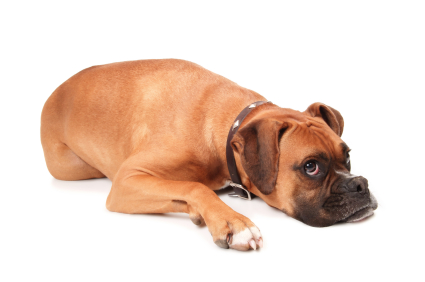DogBreeds Info
Information on Dog Breeds from Ato Z
|
How To Avoid Worms In YourDog
There are quite a few worms that can invade your dog, which is can be quite irritating for them to handle. Hookworms can get inside the animal through their legs and also into their paws, some even swallow them by mistake. When a puppy is still feeding from their mother they can also obtain these hookworms. Once the worms are inside the dog, they can result in weight loss, dehydration and causing the dog to have uncomfortable bowel movements as well. Roundworms are a bit larger in size and they can be delivered through feeding off of their mother and also through ingestion as well. Symptoms of a dog infected by roundworms are vomiting, coughing and having their coat of fur lose its luster. These types of roundworms can result in fatal occurrences if not detected early enough or treated by a vet. Whipworms are smaller, and can only be obtain by ingesting them. The symptoms of the whipworms are a significant loss in appetite, problems with the canine’s eyelids and gums and also can be very serious if detected in a puppy.
A common flea tapeworm is long in length, and results in causing the dog to itch or scratch which can be irritating, but these types of worms are not harmful to the dog. Another variation is the Hydatid tapeworm which is commonly found where dogs have open space to roam where a flock of sheep may be raised as well, typically on a farm. These types of worms do not generally harm a dog, but they can be very dangerous for humans to get, even fatal if not treated. Humans only get them by ingesting eggs that lay on the dog’s fur coats from contact.
Getting the right treatment for your dog when you may have detected they have encountered worms of some form, is key. Taking them to the vet regularly and always cleaning out any areas that contain fecal matter is vital. It is also advised that the owners (as much as some may like it) do not permit their dogs to lick their faces while petting or playing with the dog as well. Having your dog de-wormed is effective also, this should be done every three months when the dog is older and much more on a weekly basis when they are puppies. They do sell medications and collars to deter these types of worms form invading your dog, but prevention is the best policy to ensure your pup will be worm free! Brushing their coats on a regular basis and keeping a schedule of when they need de-wormed will be the easiest way to stay on top of any worm incidents.
Related Articles Reasons to Choose Organic Dog Food 5 Common Household Toxins and Your Dog The Best Dogs for Senior Citizens Pros and Cons for Neutering or Spaying YourDog Basic Principals for Better Health andSafety of Dogs 5 Ways To Keep Your Dog Healthy and Safe How to Avoid Dehydration for Dogs How to Choose A Dog That's Right For You How to Get Your Dog to Stop Barking How To Avoid Worms In Your Dog Poisons To Keep Away From Your Dog Safety Dogs for Autistic Children Should You Buy From A Puppy Mill? Teaching Your Dog To Speak, Not Bark Buying a Dog From a Rescue: What To Look OutFor 5 Common Household Toxins and Your Dog 5 Tips For Dog Show Preparation Clipping Dog Nails: A How To Guide How to Puppy Proof Your HomeChildren and Dogs: Is your Child Ready For aDog? Dogs and Fleas: How to Treat Your Dog'sFleas 5 Ways To Exercise With Your Dog Brushing Dog Teeth: A How To Guide Overweight Dog? The Doggy Diet 5 Useful Tips For Dog Paw Care When To Euthanize Your Dog: Making TheDecision How to Stop Your Dog From Jumping 5 Tips To Managing Shedding Dogs Where You Should Look to Find Your Puppy Three Main Keys to Owning a Healthy and HappyDog Dog First Aid: How To Treat Woundsand the Supplies You Need The Options for Paying Those Costly VetBills Tips to Maintain a Healthy Dog or Puppy forLife Things to Consider Before Buying a Puppy Useful Information for Dog Breeding Training Your Dog to Walk with a Leash Most Popular Dog and Puppy Names of 2011 Dealing with your Dog's Sleeping Habits Why You Really Shouldn't Feed Your DogScraps Why Don't Some Dogs Like Strangers? To Breed for the AKC Standards or Not Why You Should Check for Corn in Your DogFood Dealing With Your Dog's Ear Infection Shock Collars and Electric Dog Fences Foods to Keep Away From Your Dog Should You Feed Your Dog a Raw Food Diet? Calming Your Dog Around Thunder Things to Consider When Moving While Owning aDog Why You Should Get Your Dog Fixed Learning to Live With a Dog When You Don'tWant To What to Do if You Are Attacked By a Dog |
|
Copyright 2010. All Rights Reserved.
www.dogbreedsinfo.org
 Trying to keep a healthy and strong dog is a time worthy process. Much like nurturing a garden or caring for a child, a dog needs a lot of care to ensure their health is your priority. Worms and dogs are common, some owners become very upset when this can occur, but taking them to the vet can be the first step in the right direction.
Trying to keep a healthy and strong dog is a time worthy process. Much like nurturing a garden or caring for a child, a dog needs a lot of care to ensure their health is your priority. Worms and dogs are common, some owners become very upset when this can occur, but taking them to the vet can be the first step in the right direction.